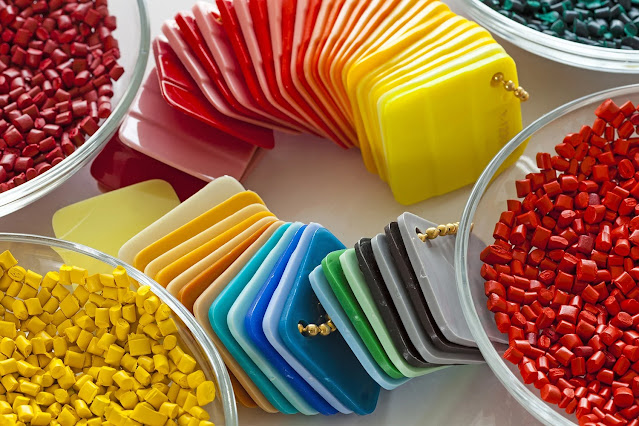The Food And Beverage, Pharmaceutical, And Chemical Sectors Use Molded Plastics For Containers, Bottles, And Packaging Sheets
 |
| Molded Plastics |
Plastic processing is a technique that uses a hard matrix or mould to shape polymers that are in the form of granules, pellets, sheets, preforms, fluids, and powders into formed parts, shapes, and components. Plastic parts are frequently made from polymers such as polyethylene, polypropylene, polyvinyl chloride, polystyrene, polyethylene terephthalate, polycarbonate, and polyamides. Molded Plastic are the polymers that are utilised in plastic moulding processes to make plastic parts and components.
Non-metallic compounds that are generated synthetically and can be shaped into a variety of shapes for commercial application are called Molded Plastic. These can be hardened to the proper consistency and are incredibly versatile, effective, and bendable. These are used to create tiny components with a great deal of finesse and intricacy. Due to their high ductility, tensile strength, impact resistance, moisture resistance, and increased design flexibility, these are used in a variety of applications, including those in the building and construction, automotive and transportation, consumable and electronics, packaging, and other fields such as medical, stationary, and textiles.
These are also employed in the production of bumpers, grilles, panels, fenders, wheel wells, engine covers, table components, air flow ducts, equipment, exterior fascia & ornamental panels, and other parts for automobiles. These are used to make flooring tiles and rolls, PVC sheets, insulating membranes, electrical conduits, plumbing, rain water and sewage pipes, and gas distribution pipes, among other building products.
Its consumption is anticipated to be driven by the moulded plastics' lightweight, low cost, chemical and moisture resistance, and design flexibility. Cans, containers, bottles, and packaging sheets for the food and beverage, pharmaceutical, and chemical sectors are made from Molded Plastic. However, sources including crude oil, naphtha, and natural gas are the main raw materials utilised to make petrochemicals, which are then used to make a variety of moulded plastic goods. As a result, the scalability and profitability of moulded plastic producers may be directly impacted by their dependence on these extremely variable resources.



Comments
Post a Comment